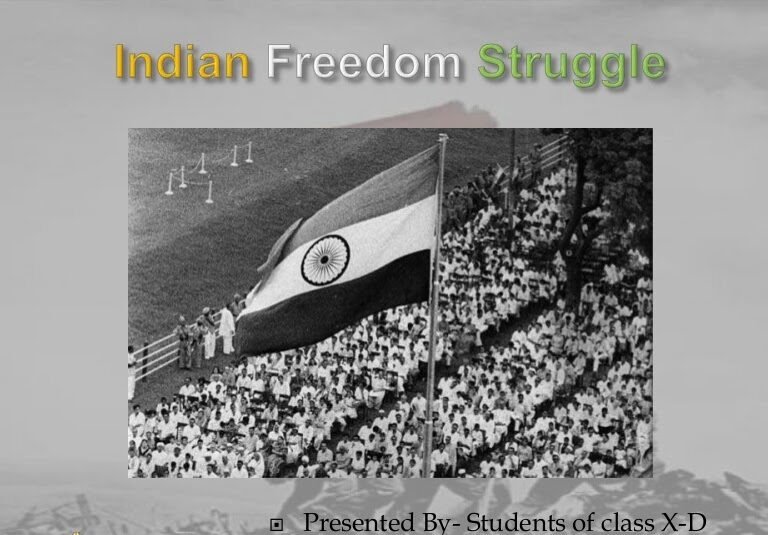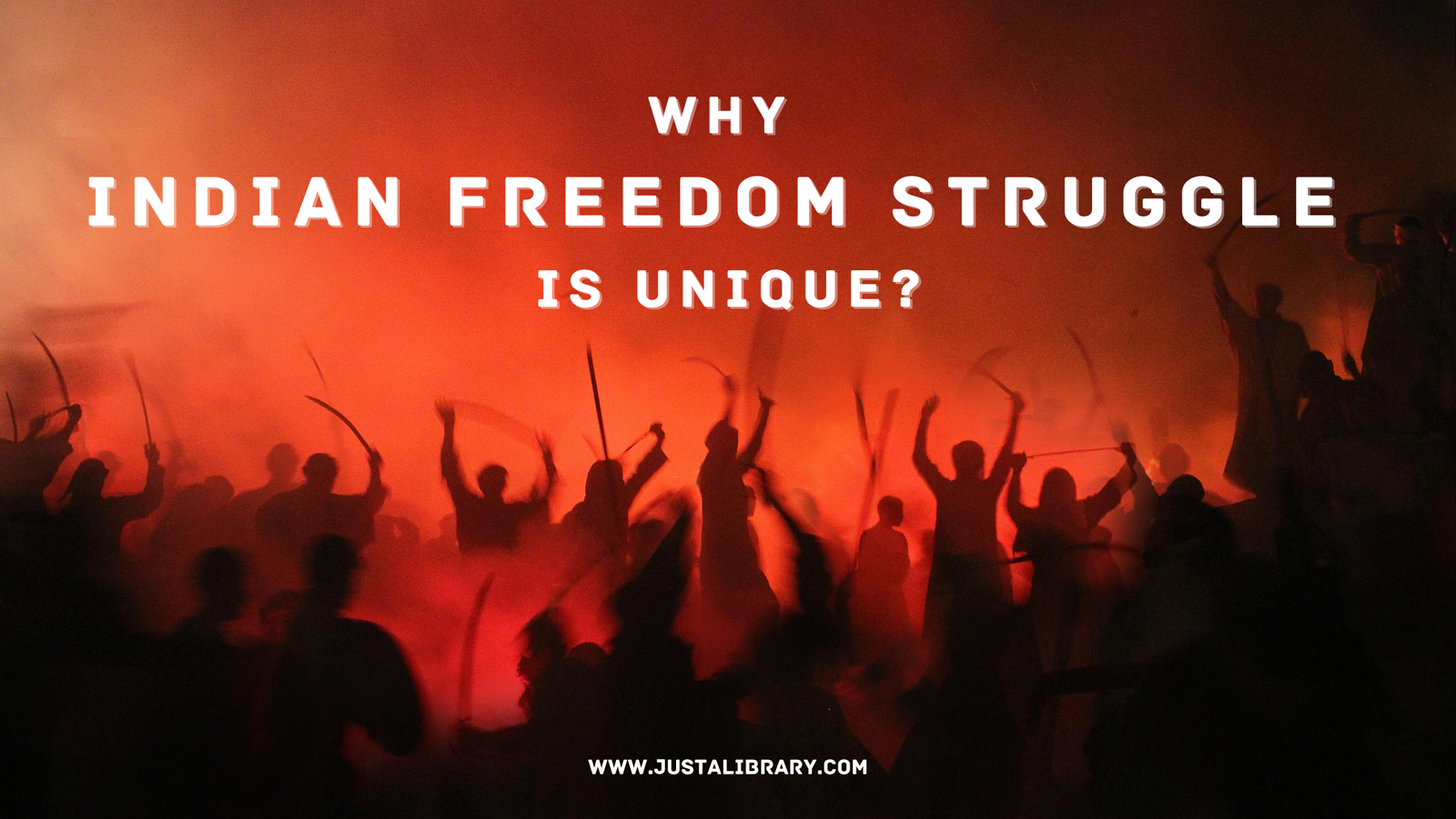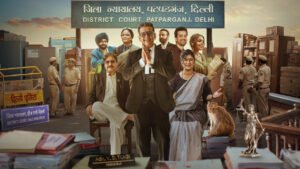Around 63 countries across the world had fought for independence against various colonial powers. But why does India’s freedom struggle stand out in all of them? Why is Indian freedom struggle unique?
It was summer. Not only is the sun too hot to handle but there are others who are burning inside to take revenge on colonial rule. A bloody revolt broke out in Meerut in 1857 when Mangal Panday was hanged for opening fire on his commanding officer. Almost 3,00,000 Indians participated in the revolt against the East India company force. Can you guess what is the strength of the East India company force? Just 21000.
INDIAN FREEDOM STRUGGLE
Even though there is great imbalance in the strength in favour of India, why did we fail to win over British?
It was the monsoon. There were not only floods to Hooghly river, but also a flood of an uprising by people of Bengal for partitioning Bengal into East and West Bengal in 1905 to disturb Hindu and Muslim unity. There was a huge movement (Swadeshi movement) to boycott the foreign goods and boycott Indian services to brits who are living in India. It was one of the biggest movements in Indian history with large scale civilian participation. But in the end it was also weaned off without much success.
It was winter and nights were very chilly in the U.P. But Indian people got no chill towards Britishers. They were very angry about what happened in Jallianwala Bagh. On the call of Gandhiji, everyone started protesting non violently (until Chauri Chaura) against brits in Non-cooperation movement, again biggest mass movement in Indian freedom struggle which ended abruptly by Gandhiji without any notable success.
ALSO READ – Tribute to the Father of Indian Economy – Shri P V Narasimha Rao
The above three movements are individually capable of overthrowing the British from India but still failed to do so. why?
1. Lack of Unity among local princes and states
There were more than 570 princely states under various Indian princes and Indian nobles. Most of them do not have any nationalist feeling towards the country and most of the time they supported Britishers in wars against Indians. For example, Raja Shakthi sinh of Rajputs, Raja Haranam Singh of Kapurthala supported British to suppress the revolt of 1857 for petty gains
2. Lack of Education and political awareness
People in India during 1905 were mostly illiterate. The literacy rate was less than 10%. Therefore it was very difficult for leaders to cultivate awareness and make them participate in the movement against Britishers. The national movement did not reach the common man and was only confined to urban centres.
3. Chauri Chaura incident
It was a violent incident that took place near Gorakhpur, U.P in which 22 Indian policemen were killed by 2500 protestors. This incident made Gandhiji very sad and he suspended the whole non-cooperation movement. He felt that people are not yet ready to take up a mass movement which is true to a large extent. Gandhiji taught that “Man by nature is good. If we want to change a man completely, it is only possible through non-violence.” It took a lot of time for people to actually understand the ideology of Gandhiji.
But as time passed on, The people started understanding the ideas of Tall nationalist leaders and started following them to the freedom struggle. Our leaders also started innovative techniques to reach to large masses and create awareness about British atrocities. Different leaders chose different ways to reach the masses. There were people with different ideologies to achieve independence for India. For example, Ram Prasad Bismil followed the path of Radical militancy, Chitranjan das and Motilal Nehru followed the path of Legislative propaganda, Patel and Nehru followed Gandhian philosophy, Subhash Chandra Bose followed International military struggle, means may be different for different individuals but Ends are same for everyone i.e Independence to India.
But why did it take 200 years to get independence?
- The social and cultural inequalities and dogmas are so deep-rooted in Indian societies, it took a very long time to progressive leaders like Gandhi, Nehru, Azad to convince people to speak in a single voice.
- The religious, caste and ethnic diversities in India are used by the British effectively to divide and rule.
- Due to the industrial revolution, the British had access to most modern war machinery and financial resources.
- International support and competition for colonialism also helped the British to retain a large number of colonies across the world.
Therefore it took more than 90 years to set the sun in the “Empire in which the sun never sets”
There are many countries that fought for independence from various colonial empires. But the Indian freedom struggle is a very unique one. The countries which fought for their independence tried to give difficulties to the colonial rulers. They tried to kill them, evict them, conspire against colonial powers etc… That is why historians call most of such movements as “Wars of independence“. But in the context of India, we don’t call our fight for independence as War. We call it the “Indian freedom struggle“. The reason is, for our independence, we struggled, we experienced pain, we fought, we went to jails, we were hanged. Ours is not any war, ours is an emotional struggle that we can proudly showcase to the world.

There are multiple failed movements, uncountable failed delegations, infinity illegal arrests and detentions but at the end, our national leaders (Hero’s) achieved what everyone wants. What India wants. All the situations, incidents, hurdles and shortcomings that are seen during the freedom struggle acted as great learning for our leaders like Nehru, Patel, Ambedkar etc… to build India’s future through the constitution. India was transformed into a democratic sovereign republic where people are more powerful than their rulers. As the saying goes, Good things happen to those who wait, though India was under foreign claws for 200 hundred years, It has become what it is today with sheer determination and sacrifices. We must never forget even a single person who gave his time, blood and life and we must cherish every individual who was part of the National freedom movement until we live or until India lives.
Wishing you a
HAPPY INDEPENDENCE DAY🇮🇳
Follow JUST A LIBRARY for more interesting contents.
Stay tuned! Stay updated!






